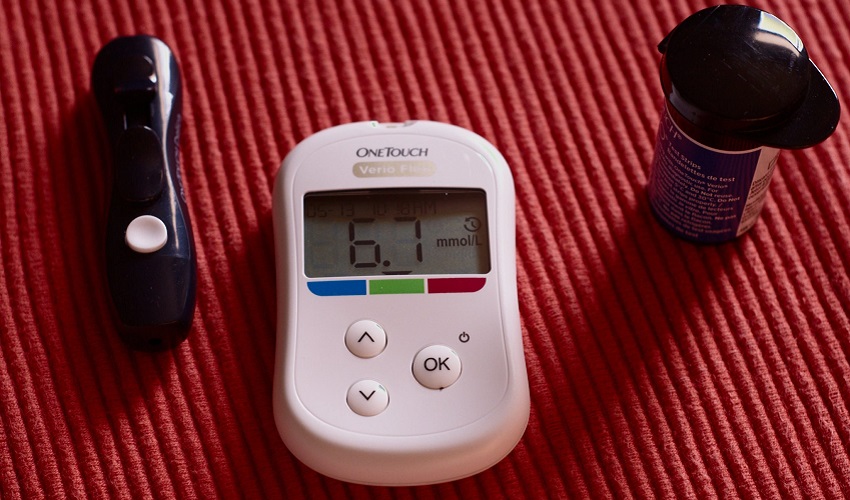Living with Type 2 diabetes requires a proactive approach to managing the condition and preventing potential complications. Diabetes is a chronic condition characterized by the body’s inability to properly regulate blood sugar levels. While it can be managed effectively with lifestyle changes, medication, and regular monitoring, it is crucial for diabetic patients and their caregivers to understand the risks associated with the disease. Among the most critical aspects of diabetes management is screening for complications affecting the heart, kidneys, and eyes. In this article, we will delve into the importance of monitoring these vital organs, the methods used for screening, and the significance of early detection and intervention. By staying informed and proactive, individuals with diabetes can reduce the impact of complications, enhance their overall well-being, and lead a fulfilling life.
Understanding Diabetes Complications
Type 2 diabetes, if not managed properly, can lead to various complications affecting different organs and systems in the body. Chronic high blood sugar levels can cause damage to blood vessels and nerves, leading to severe health issues. Three of the most common and serious complications of diabetes are those affecting the heart, kidneys, and eyes.
When diabetes is uncontrolled, excess glucose in the bloodstream can react with proteins in blood vessels, leading to the formation of advanced glycation end products (AGEs). AGEs can cause inflammation and damage to blood vessels, making them more susceptible to atherosclerosis, a condition where fatty deposits accumulate, narrowing the arteries and increasing the risk of heart disease.
The Link Between Diabetes and Heart Health
Diabetes significantly increases the risk of heart-related complications. The persistent elevation of blood sugar levels can damage blood vessels and nerves that control the heart, leading to various heart issues. Additionally, other risk factors associated with diabetes, such as high blood pressure and high cholesterol levels, further contribute to heart health concerns.
It is important to note that heart disease is the leading cause of death among individuals with diabetes. The risk is even higher for those who have had diabetes for an extended period or have uncontrolled blood sugar levels. Diabetic patients need to be aware of this risk and take proactive measures to protect their heart health.
Importance of Regular Heart Screening
Regular heart screening is crucial for individuals with diabetes to detect any early signs of heart-related complications. The American Diabetes Association (ADA) recommends annual assessments that may include:
Blood pressure measurement: High blood pressure can strain the heart and increase the risk of heart disease. Regular monitoring helps identify any hypertension early on and allows for appropriate management.
Cholesterol level checks: High levels of LDL cholesterol (often referred to as “bad cholesterol”) can contribute to the buildup of plaque in the arteries, increasing the risk of heart disease. Monitoring cholesterol levels helps in early detection and can guide lifestyle and medication interventions.
Electrocardiogram (ECG): An ECG is a non-invasive test that measures the electrical activity of the heart. It helps detect irregular heart rhythms and other abnormalities that may require further evaluation.
Regular heart screening is not only essential for early detection but also for guiding appropriate interventions to manage heart health effectively. Lifestyle changes, such as adopting a heart-healthy diet and engaging in regular physical activity, can significantly reduce the risk of heart-related complications.
The Kidneys and Diabetes
Diabetes is the leading cause of chronic kidney disease (CKD), a condition that occurs when the kidneys are unable to filter blood effectively. Persistent high blood sugar levels can damage the blood vessels in the kidneys, impairing their ability to remove waste and excess fluids from the body. Over time, this can lead to kidney failure, necessitating dialysis or transplantation.
Diabetic nephropathy, a specific type of kidney disease caused by diabetes, progresses slowly and may not show noticeable symptoms in the early stages. Therefore, regular kidney screening is essential to assess kidney function and identify any signs of CKD progression.
The link between diabetes and kidney disease is well-established. Around 30% of people with diabetes develop kidney disease, making it a significant concern for diabetic patients. Uncontrolled blood sugar levels, high blood pressure, and genetic factors can all contribute to the development of diabetic nephropathy.
Regular Kidney Screening and its Significance
Regular kidney screening is crucial for diabetic patients to monitor their kidney health. The ADA recommends at least an annual urine test to check for protein leakage, a sign of kidney damage. Additionally, a blood test to measure creatinine levels can help estimate the glomerular filtration rate (GFR), which provides further insights into kidney health.
Early detection of kidney damage allows for timely intervention, which can slow down or prevent further deterioration. Lifestyle modifications, blood pressure management, and medication can all play a role in preserving kidney function and delaying the progression of kidney disease.
In addition to the recommended annual screenings, diabetic patients should also be vigilant about any signs of kidney problems, such as increased urination, swelling in the hands and feet, fatigue, and changes in urine color and frequency.
Diabetes and Eye Health
Diabetic retinopathy is a common complication affecting the eyes of individuals with diabetes. Elevated blood sugar levels can damage the blood vessels in the retina, the light-sensitive tissue at the back of the eye, leading to vision problems and even blindness if left untreated. Diabetic retinopathy may also increase the risk of other eye conditions, such as glaucoma and cataracts.
The risk of diabetic retinopathy is closely linked to the duration of diabetes and the level of blood sugar control. Individuals who have had diabetes for a long time or have difficulty managing their blood sugar levels are at higher risk of developing diabetic retinopathy.
The Importance of Regular Eye Examinations
Regular eye examinations are vital for diabetic patients to monitor their eye health. The ADA recommends at least an annual dilated eye exam to detect any signs of diabetic retinopathy or other eye issues. During the exam, the eye care professional will dilate the pupils and examine the retina for signs of damage, such as leaking blood vessels or swelling.
Early detection of diabetic retinopathy is crucial, as it allows for timely treatment to prevent or slow down vision loss. Treatments may include laser therapy, injections, or surgery, depending on the severity of the condition.
In addition to regular eye exams, individuals with diabetes should be vigilant about any changes in their vision or eye health. Blurred vision, floaters, and difficulty seeing at night could all be signs of diabetic retinopathy and should be promptly reported to an eye care professional.
Lifestyle Modifications and Diabetes Management
While regular screenings are crucial for monitoring diabetes complications, lifestyle modifications play a pivotal role in overall diabetes management. A healthy lifestyle, including a balanced diet, regular physical activity, and weight management, can significantly reduce the risk and progression of complications. Moreover, adherence to prescribed medications and continuous glucose monitoring are essential for maintaining stable blood sugar levels.
Diet: Following a balanced diet that is low in added sugars, refined carbohydrates, and unhealthy fats can help keep blood sugar levels in check. Emphasizing whole grains, lean proteins, fruits, and vegetables can contribute to better diabetes management and overall health.
Exercise: Regular physical activity helps improve insulin sensitivity and allows the body to use glucose more effectively. Engaging in moderate-intensity exercises like walking, swimming, or cycling for at least 150 minutes per week is recommended for individuals with diabetes.
Weight Management: Maintaining a healthy weight is essential for diabetes management. Weight loss can improve insulin sensitivity and blood sugar control, reducing the risk of complications.
Medication Adherence: Diabetic patients should closely follow their healthcare provider’s instructions regarding medication usage. Regularly monitoring blood sugar levels can help in adjusting medication dosages as needed.
Continuous Glucose Monitoring (CGM): CGM devices offer real-time blood sugar readings, helping individuals with diabetes to track their glucose levels throughout the day. CGM data can inform decisions about diet, exercise, and medication adjustments.
Diabetes complications can significantly impact the quality of life of individuals with Type 2 diabetes. Regular screening for heart, kidney, and eye health is essential for early detection and intervention, which can reduce the severity of complications and improve overall well-being. By staying proactive and adopting a healthy lifestyle, diabetic patients can effectively manage their condition, minimize the risk of complications, and lead fulfilling lives. Remember, knowledge is power, and staying informed is the first step toward taking control of your health.




